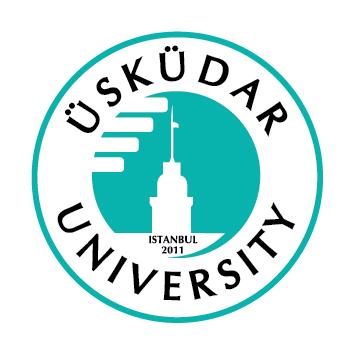Article
Makale
Tasavvuf Literatüründe “Anne” Kavramı ve Mürşid Olarak Anneler: Türâbî (Biyolojik) Anneden İlâhî Anneye
The Concept of “Mother”in Sūfī Literature and Mothers as Guide: From Biological Mothers to the Divine Ones
Hülya Küçük
Year 2023, Issue 1, Pages:41-62
In Sūfī literature, there are many terms that include the word “mother/al-umm”. As limited to the subject of
“spiritual guidance in Sufism in general and the guidance of the mother in particular” –without diving into
other material about the concept of “mother” in Sūfī literature–, this article deals with the following main
ideas: In the history of Sufism, there were examplary mothers such as Ibn Khafīf’s mother Umm Muḥammad;
Ibn al-ʻArabī’s turābī (biological) mother Nūr, Ibn al-‘Arabī’s divine mother Fāṭima Bintu Ibnu’l-Muthennā
and Kenan Rifāī’s mother Hatice Cenân Vâlide Sultân, who were described as “guides” in the literal sense. It
is a remarkable detail that of these, Ibn Khafīf’s is known as al-Shayh al-Kabīr and Ibn al-Arabī is known as
al-Shayh al-Akbar. That is to say that the leading figures of Sufism were brought up under the surveillance of
their mothers. In addition to these mothers, all turābī mothers are the most worthy of the quality of being a
guide (Murshid) having a major role in upbringing of her child, which begins before she/he is born. Besides,
the mother is very sincere in all of her efforts to educate her child, not having any other intention than desiring
happiness for him/her in this world and the hereafter. Thus, the hazards that al-Muḥāsibī warned about
(i.e., slackness in respecting the rights of Allah while teaching/guiding others, falling into hypocrisy, and
neglect to take his own lower-soul into account) do not pose a problem in mother’s education of her child.
Keywords: Guidance, al-Ḥārith al-Muḥāsibī, Mother, Divine Mother, Abū Abdillah Ibn Khafīf, Ummu
Muḥammad, Muḥyī al-dīn Ibn al-ʻArabī, Mother Nūr, Fāṭıma Bint Ibn al-Muthannā, Hatice Cenân Vâlide
Sultân.
Tasavvuf literatüründe “ümm/ana, anne” kelimesi, Ümmü’l-Kitâb/Kur’ân, Ümmü’l-esmâ’ veya Ümmühât-ı
Esmâ’ gibi temel dînî/metafizik terimlerde geçmektedir. Bu makale, “Tasavvufta şeyhlik ve annenin
şeyhliği” konusuyla sınırlı bir makale olarak, şu konuları incelemektedir: Tasavvuf tarihinde, İbn Hafîf’in
annesi Ümmü Muhammed; İbnü’l-ʻArabî’nin türâbî annesi Nûr, ilâhî annesi Fâtıma Bintü İbnü’l-Müsennâ;
Kenan Rifâî’nin annesi Hatice Cenân Vâlide Sultân gibi, terim anlamıyla mürşid olarak tavsîf edilen anneler
vardı. Dikkat çekici bir detaydır ki bunlardan İbn Hafîf’in eş-Şeyhu’l-Kebîr; İbnü’l-‘Arabî’nin de eş-Şeyhu’l-
Ekber olarak bilindikleri ve dolayısıyla tasavvufun önde gelen isimlerinin, annelerinin kontrolünde
yetişmiş oldukları hususu, câlib-i dikkattir. Bu annelere ek olarak bütün anneler/türâbî anneler, çocuğun
doğumdan önce başlayan terbiyesinde büyük rolleri olması açısından mürşidlik vasfının kendilerine ıtlâkına
en lâyık kişiler olsa gerektir. Anne, çocuğunu terbiye için yaptığı bütün çabalarında, onun dünya ve âhiret
mutluluğunu isteme ve başka bir niyeti olmaması açısından gayet samîmîdir ve riyâ, başkalarına dindâr
görünmeye çalışmak, kendini hesaba çekmeyi ihmal etmek gibi el-Muhâsibî’nin sözünü ettiği tehlikelerden
(yani başkalarına yol gösterirken kendisinde Allah’ın haklarına riʻâyet etmede ihmalin başlaması, riyâya
düşme ve nefsini hesaba çekmeyi ihmal etme) gibi tehlikelerden uzaktır.
Anahtar Kelimeler: Mürşidlik, Hâris el-Muhâsibî, Anne, İlâhî Anne, Ebû Abdillah İbn Hafîf, Ümmü
Muhammed, Muhyiddîn İbnü’l-ʻArabî, Anne Nûr, Fâtıma Bintü İbnü’l-Müsennâ, Hatice Cenân Vâlide Sultân.

